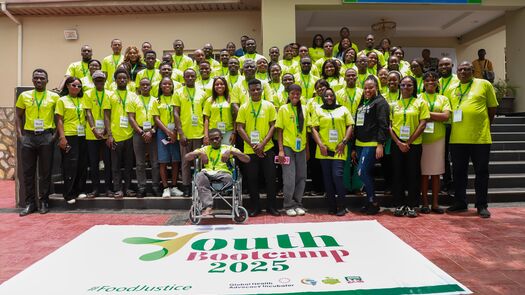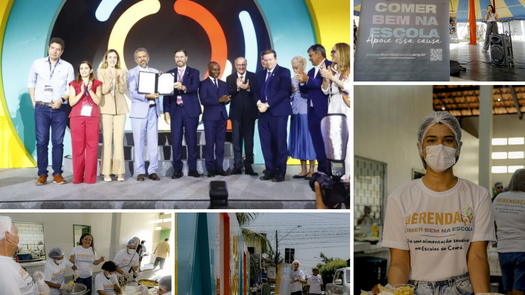November 25, 2025
July 10, 2024
Our Food and Nutrition Program Directors: Meet Mariana

The Global Health Advocacy Incubator (GHAI)’s Food and Nutrition Program works to advance healthy food policies that reduce the demand for unhealthy, ultra-processed products and to increase access to nutritious food. For this blog series, we sat down with some of its directors to gain their perspective on how the program has advanced and where they hope to lead it in the future.
Below is an excerpt from our interview with Mariana de Araujo Ferraz, Director of the Food Policy Program for Asia, Latin America and Caribbean.
1. How has GHAI’s Food and Nutrition Program progressed since you started?
Since I started in 2018, I've been part of an exciting evolution of the Food and Nutrition Program. We were initially very focused on policy priorities to decrease obesity rates and we were supporting five countries: Barbados, Brazil, Colombia, Jamaica and South Africa. Once the advocates in those countries gained more space and experience in pushing for these policies, we started down a wonderful path and achieved some very important policy wins, including front-of-package labeling regulations in Brazil and Colombia and taxation policies in South Africa and Colombia. We also secured remarkable school feeding policies in Brazil and in the Caribbean.
The journey brought GHAI important lessons about supporting advocates. The advocates, in turn, got to understand how industry was opposing these policies and the need to be prepared with a specific strategy. We also learned that the Food and Nutrition Program needed to address our policy priorities with a wider lens on challenges within the food system, especially the accessibility of healthy foods. We and our partner organizations also began incorporating more research and evidence showing that ultra-processed products are a very important problem within the food system, harming public health and the environment, and need to be regulated.
2. What regional trends have you observed in advancing healthy food policies?
In Latin America, we see a hub for innovation and broader advocacy integration to decrease consumption of ultra-processed products while increasing access to healthy foods. In Latin America, the Caribbean and South Africa, advocates have highlighted the reality that their citizens face the double burden of malnutrition – experiencing widespread obesity and overweight simultaneous with undernutrition. This gave us more reason to look holistically at the situation. In Brazil and Colombia, for example, we support partners who advocate for taxes on sugary beverages while also looking at the whole tax system. This allows them to fight for fair tax systems that enable access to healthy foods.
Now that we are working more in Asia—funding advocates in Vietnam, Indonesia, the Philippines and Pakistan–we are seeing a similar trend that occurred in Latin America, where advocates are getting connected, creating networks and supporting each other. The development of a strong community of practice for advocates from different countries to learn from each other and incorporate strategies, especially in opposing the food and beverage industry, is critical for advancing healthy food policy wins.
3. In your role, what big picture goals do you have for the Food and Nutrition Program?
I started working in the Food and Nutrition Program as an In-Country Coordinator in Brazil, working very closely with the local advocates on marketing restrictions and food and consumer defense policies. In my new role, I hope to keep this local perspective on what is needed to build strong advocacy campaigns. This includes supporting local partners with resources, including capacity strengthening and legal, industry interference preparedness, communications and research support.
My big picture goal for the Food and Nutrition Program is really to create connections among countries. We want to catalyze global and regional communities of practice, where advocates interact and learn from each other. We are very well positioned as an organization to build those bridges and facilitate this learning, so that advocates are prepared to win their campaigns.



